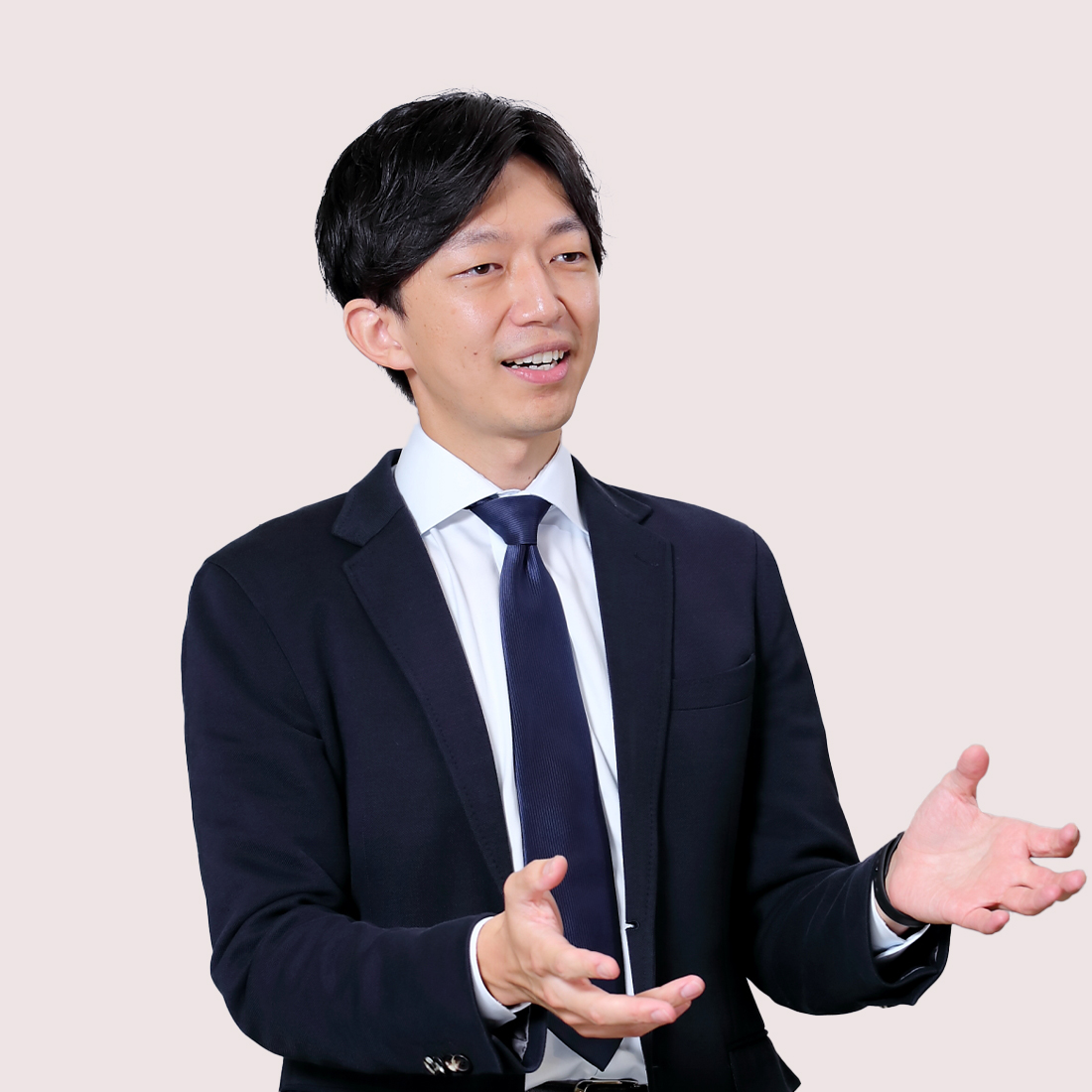Know MC's People
- What words inspire you?
-
Put yourself in the other person's shoes

Yuki Sawada
Food Industry Group Marine Products Division
Marine Products Dept.
Secondee at ATLAND Corp.
(At the time of interview in November 2024)
-
What's the story behind those words?
-
I was reminded of the importance of this expression after concluding my first trade contract. I was full of confidence when I reported the closure to my boss, but his response threw me a little. He said, "Congratulations on wrapping up your first deal, but are you certain the buyers are happy with the conditions?" It struck me then that I had been so focused on securing profits for MC, that I hadn't given enough consideration to the buyer's position. My boss's words got me to rethink what's necessary to ensure our businesses are sustainable, and a big part of that is striking deals that are mutually rewarding.
Since then, my primary focus has been on establishing the means to create lasting, win-win relationships, so I whenever I embark upon a new business deal, I try to put myself in my counterparts' shoes and consider how they would react to the terms I'm proposing.
I approach new business launches the same way. Before making any proposals, I always ask myself what concerns the business's stakeholders might have and what their expectations of MC will be. This is how I can make sure that all of our goals are aligned.
I'm determined to continue doing my part to develop winning business frameworks for all stakeholders, and that's why I'll never forget to put myself in their positions.
-
How rewarding is your current job?
-
This job brings me gratitude and reward every time I see customers buying seafood in supermarkets or the smiles on the faces of my family members when we eat it at home.
The mission of the foods industry is to consistently meet rising global demand. Seafood is a dietary staple here in Japan, but its supply could destabilize in the future due to competition with other countries to source it and higher prices brought on by increasing fuel costs and environmental damage caused by its shipment. In 2022, MC took a step towards stabilizing seafood production by establishing a land-based, salmon-farming company called Atland Corporation. I was involved in the company's conception and seconded to it to help set it up. Now I'm working as its Project Manager, and I'm responsible for commencing much of its operations, including the design of its facilities, test runs of its aquaculture equipment, and so on.
My colleagues come from varied backgrounds, and every day I meet with them to discuss how the business needs to be designed to realize Atland's mission, which is to provide a forever-sustainable supply of delicious seafood that's good for both people and planet.
I'm looking forward to this company and its operations delivering smiles to our generation and tomorrow's.
-
What are your next challenges, and what kind of world are you hoping to help realize?
-
I'd like to help create an aquaculture business that's both green and smart, and use it to create new value in the industry, first here in Japan, and then throughout the world.
In addition to cutting greenhouse-gas emissions through a business model that focuses on local production for local consumption, Atland uses deep seawater as a coolant, which lowers the business's electricity consumption and ensures a greener brand of aquaculture that is gentler on the natural environment. Furthermore, our aquaculture operations provide us with data on fish cultivation, water quality, and so on, which we can use to develop smart systems aimed at optimizing productivity.
Land-based aquaculture is a good fit with digital technologies. Combining AI tech to develop digital twins of fish-farming environments (i.e. replicate them in virtual space), could help us to optimize aquaculture solutions without having to use real fish.
About 40 years ago, Japan's aquaculture tech was among the very best in the world, but in recent years it's been surpassed by that of other countries. I'd like to take advantage of Atland's business to nurture Japanese aquaculture tech and talent that can rival that produced anywhere else in the world. I think it would be great if we could share those assets with the international fish-farming community, because I believe the best kind of global aquaculture industry will be one that combines all of our strengths. I'd also like to see a future where all the world's people can enjoy delicious seafood, and I think exporting and selling the fish produced by Atland can help make that future come true.
Bio
Yuki Sawada joined MC in 2015. His first assignment was in the Living Essential Resources Division's Marine Products Department, where he oversaw the trade of different varieties of tuna. In 2019, he was dispatched on a one-year training assignment to a livestock processing and sales company in the United Arab Emirates. Upon returning to Tokyo head office in 2020, Sawada rejoined the Marine Products Department to help conceive new businesses. Since 2022, he has been on secondment at a land-based salmon aquaculture company, where he serves as Project Manager.